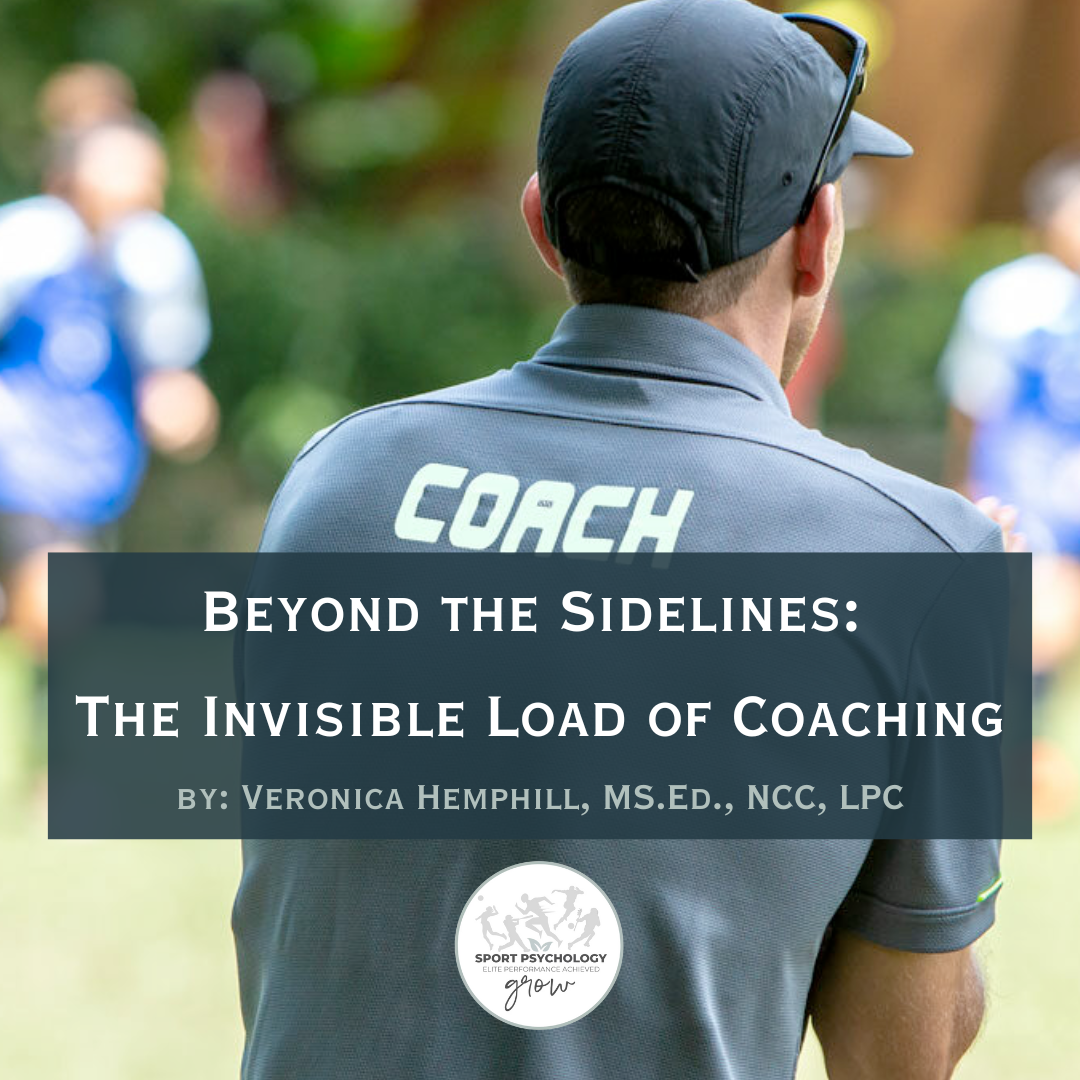


For athletes, this time of year can feel like so many different things. Some sports are in the off-season, enjoying a break from competitions and a chance to recharge. Others are entering pre-season, full of excitement and anticipation. And for many, the regular season is in full swing,with games, meets, or tournaments keeping everyone busy. For athletes, there’s novelty, energy, and growth awaiting to happen.
For coaches, though, this period is often one of the heaviest in terms of responsibility and mental load. As a former gymnastics coach, I remember these months vividly. The off-season had been intense, pushing athletes to master skills, build endurance, and condition their bodies. The work didn’t stop when practice ended; it continued in planning workouts,rotations, conversations with other coaches, and in the quiet mental processing of how to help each athlete grow.
Now comes this transitional period: routines are being finalized, basic skills perfected, endurance and strength tested, and new skills starting to become “muscle memory.” For athletes, it can feel thrilling.For coaches, it’s critical and exhausting. Bodies are fatigued, emotions run high from school, events, and holidays, and yet, this is the moment where confidence, resilience, and team cohesion are being set. This is when a coach’s trust, guidance, and hope for their athletes be evident because soon, they will hand over that over to the athletes themselves.
Coaching is sometimes misunderstood by those watching from the sidelines. To the casual observer, a coach may seem like they’re “just standing around” or “yelling instructions.” In reality, we are constantly observing, assessing, and problem-solving. We notice the subtle shifts in posture, the moment of hesitation in an athlete’s eyes, the days of self-doubt or frustration. We carry the responsibility of shaping not just performance,but character, confidence, and resilience.
During the off-season, much of the work is unseen. We analyze, plan, and collaborate, build strategies tailored to each athlete’s as well as the team’s needs. We reflect on the season that was and anticipate the season to come, adjusting for each athlete’s strengths, weaknesses, and personal experiences. By the time competitions or games begin, the groundwork is laid. The mental, emotional, and physical preparation has been done. Yet,this labor is invisible to most. Coaches often step into the competitive season already burnt out from months of planning, teaching, and emotionally investing.
This invisible labor is hard work. It’s emotional work. It’s holding space for athletes who may lack support elsewhere, noticing when someone is struggling internally, and knowing when to push and when to nurture. It’s managing your own fatigue while staying present for every athlete. It’s believing in them even when they doubt themselves and modeling that belief every single day.
This pressure is universal across sports, though it manifests differently. For team sports, it’s preparing game plans and building chemistry; for individual sports, it’s perfecting form, endurance, and consistency. For all sports, this period, the late off-season, pre-season, or mid-season can feel like a balancing act: ensuring the athletes are prepared physically and mentally while carrying the invisible load of mentorship, planning, and emotional support.
As a coach, the reward is watching that trust pay off. When athletes finally step into competition, when routines click, plays flow, or skills land consistently, it’s the end of months of unseen work. But it’s also a reminder of the weight coaches carry, the invisible labor that rarely earns applause but shapes not only athletic performance, but the lives and confidence of every athlete.
Coaches are more than instructors or sideline figures. We are mentors, strategists, and emotional anchors, constantly balancing the mental, physical, and relational work required to help athletes grow. This Coaching Appreciation Week, and every day, it’s worth pausing to recognize that the work doesn’t begin and end on the court or in the gym. It happens in planning sessions, in conversations, in moments of observation, and in the belief that our athletes can achieve more than they ever thought possible.
So, the next time you see a coach on the sidelines, remember: the visible work is just the tip of the iceberg. Behind it lies months of preparation, care, and emotional labor, the invisible foundation that makes athletic growth, confidence, and resilience possible. Coaches not only just shape athletes, they shape people. And that is work worth seeing, honoring, and appreciating.
At Grow Sport Psychology, we understand that coaches carry a unique mental and emotional load. Our team works with coaches to manage stress, maintain balance, and work on their own well-being throughout the season. Supporting those who support others is part of our mission, because when coaches thrive, teams do too.
To Learn More:
Call: 331-457-2020
Email: sports@growwellnessgroup.com
Website: https://growwellnessgroup.com